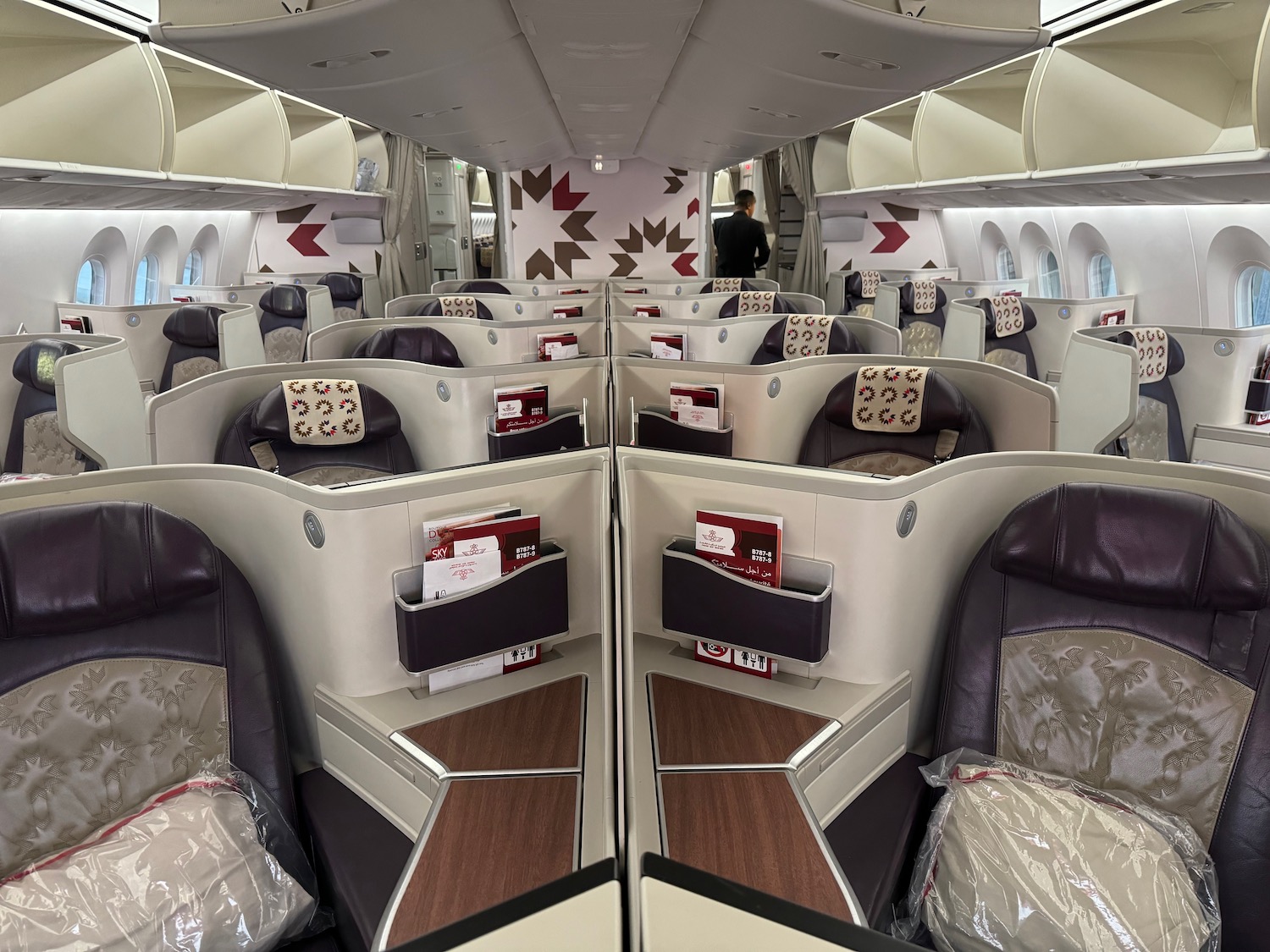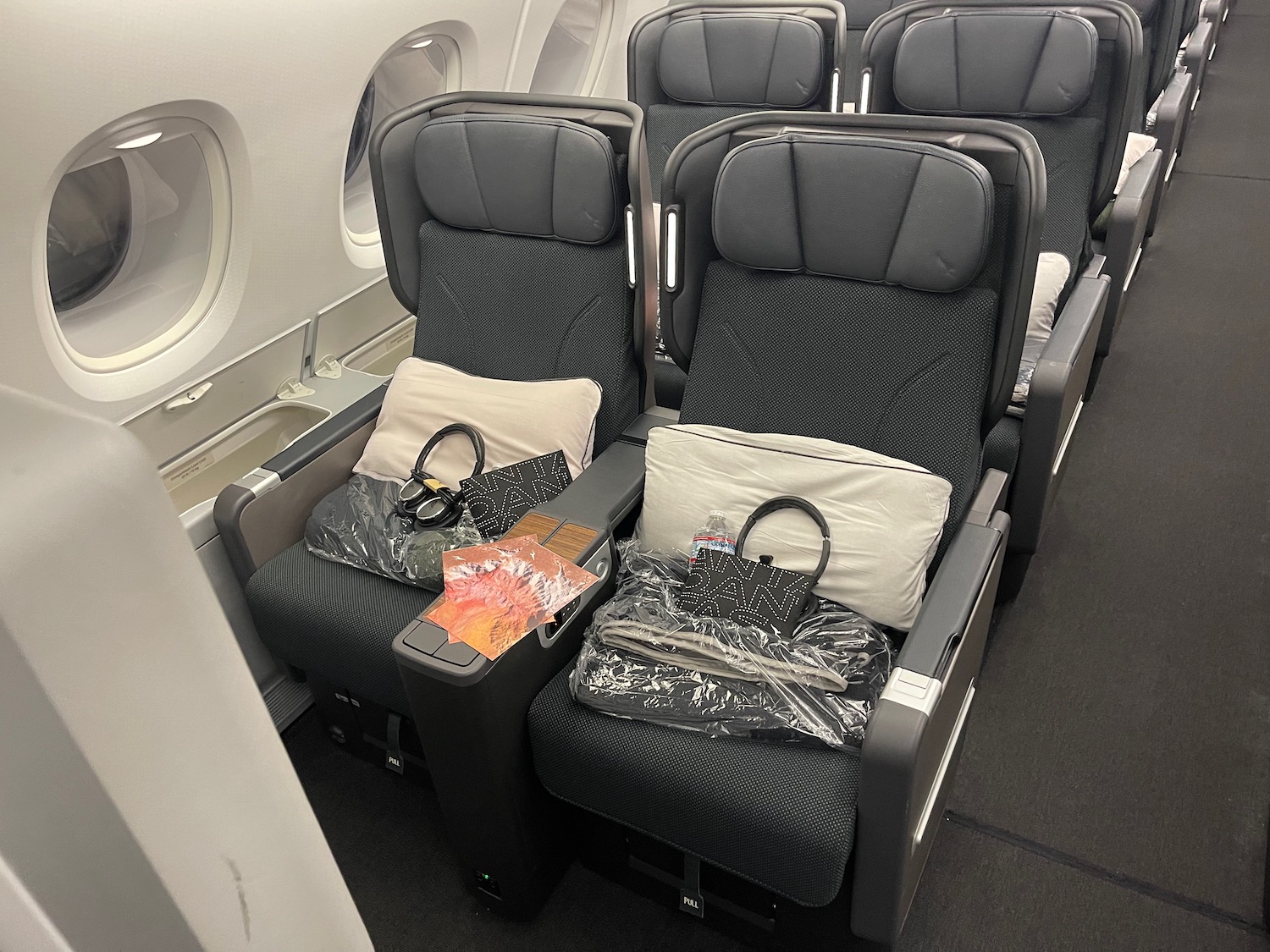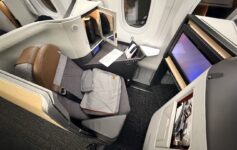Delta Air Lines announced it was pursuing a less premium version of Business Class with fewer amenities, here’s why I might welcome such an option and you might too.
If you are considering booking travel or signing up for a new credit card please click here. Both support LiveAndLetsFly.com.
If you haven’t followed us on Facebook or Instagram, add us today.
The Concept: Basic Business Class
Earlier this year, Delta Air Lines announced that it would introduce a new fare class in the premium sector, a Basic Business Class fare without all of the traditional trimmings that premium flyers have come to expect.
“During Delta’s second quarter earnings call, President Glen Hauenstein confirmed the airline’s intention to “unbundle” its business class offerings. This strategy mirrors the successful segmentation of economy class fares, which has become commonplace in the industry.” – Jettails
Market segmentation used to be First Class, Business Class, and Economy. Over time, the needs for business travelers grew into a more refined and advanced offering, and many companies eschewed executive travel in “First” class reducing the relevance of the cabin.
Business class typically comes with checked baggage (two to three pieces and sometimes up to 70 lbs each instead of the standard 50 lbs), a seat assignment, an amenity kit, upgraded meals, lounge access on departure (and often upon arrival), priority boarding, priority check-in, and sometimes priority or fast track security or customs.
Basic Business Class tickets aim to reduce the entry cost for Business Class by removing the inclusions or charging extra for some of them with a lower starting price point.
“The concept of “Basic Business” is not entirely new to the aviation world. Several international carriers, including British Airways, Emirates, and Qatar Airways, have already implemented similar models. These typically involve restricting access to certain perks such as advance seat selection, lounge access, and baggage allowances for lower-priced business class fares.” – Jettails
The airline hasn’t indicated which of the amenities will be excluded and whether passengers can buy those as they choose, though baggage and lounge access already have price points for those who do not have them included with their ticket.
Redundant Benefits
Some of the benefits that are included in Business Class fares are duplicated with status benefits. For example, with oneworld mid-tier status holders receive access to the lounge when flying internationally regardless of the booked class of service. Even entry-level status holders will receive at least one free checked bag. Status holders have access to priority check-in, priority boarding, and they may have fast tracked security included too.
The traveler that pays for business class often flies with enough frequency and earning enough status and miles to hold or retain status – though there are free agents as well. For many travelers, however, the majority of ancillary benefits are redundant.
Use Cases For Basic Business Class
Pre-pandemic, I almost never checked luggage on my flights. Many trips didn’t warrant more than a carry-on and it doesn’t suit my travel style. There’s a conference in Europe I may attend, it’s three days long and I wouldn’t extend my trip – a single checked bag, let alone two is unnecessary. For solo trips, I like picking my seat, but it’s not really the end of the world since I don’t need to be located near anyone else. A further benefit I can’t always utilize is the lounge. Coastal flyers from cities like New York heading to London or Paris for a meeting may be able to take advantage of an arrival lounge but more often than not they’d rather not plan on spending extra time in the airport on the front or back end of a flight.

Another case is when I am traveling with my family. I might want one or two checked bags but certainly not six or eight. For short redeye flights, I try to avoid the food onboard in favor of sleeping as much as possible to adjust my body to the new time zone. I could do without a meal onboard at all in many cases. I’m also unconvinced that my infant son has the palette to discern a business class meal from a sandwich in coach.
Perhaps as an upsell from Premium Economy, flyers looking at a packed cabin just behind Business Class ahead of a long haul flight might be inclined to upgrade their seat but not necessarily the rest of their experience.

A last case that comes to mind is for last minute travelers who want or need the benefits of a lie-flat seat for the purpose of their trip, but due to the urgent nature of their journey, they wouldn’t mind forgoing some of the frills.
And at the risk of being burned at the stake by Live And Let’s Fly readers, unbundling Business Class fares might also come at the expense of miles and status accrual, selling the Business Class seat only – I might be okay with that for the right rate.
Assumption Of Discount
All of these attributes of traditional Business Class I am willing to relinquish has to come at a cost savings to be relevant, not just for me but for the airline. Delta has indicated it has a desire to further segment the market, that is to say it would like to capture a segment of the market that might buy Business Class tickets if the price were lower. They only capture that element if the price is materially better. In the case of Basic Economy fares, the airlines truly followed the ULCCs into unbundled fares and it’s been successful for them.
Without a material difference, I may decide I want to keep the benefits that come with a standard Business Class fare.
Conclusion
Our community had a knee-jerk reaction to the concept of unbundled or a Basic Business Class fare, but in many instances, I rather prefer an unbundled product. If a real discount is offered, I think there’s plenty of opportunity for traditional business class flyers to get more value by selecting the amenities that are important. I agree with Delta that a market exists for this product and plenty of other airlines offer Basic Business Class, I for one am willing to give it a try.
What do you think?




” If a real discount is offered,”
That’s not how it ever works. This is so detached from reality.
@jesda … Spot on .
Happy to see you appreciate the “real” , ( unlike so much of present-day society ) .
@jesda gulati – The data suggests otherwise.https://www.transtats.bts.gov/averagefare/
This is an excuse to find a way to charge people more. It’s delta remember!!
Im all for it. But still won’t likely be paying for business class.
It’s another method to not cannabilize actual biz travelers. Executives won’t choose business light. They’ll pay (or more likely the company will pay) full freight at $6k for london to nyc return. At $3.5k for a “lite” fare you may get some leisure travelers in biz without stopping you charging the full fare to fill 60% of the cabin.
It’s like having sale fares that must include a weekend.
Or selling points to fly biz class with less flexibility.
US carriers really need to focus on improving Bus. class with better food catering, better service, amenities; create a culture of service like Singapore Air, Eva Air, Thai Air, etc. have. Years ago, US carriers had to relabel their First Class to Bus. to reflect reality; fares are quite high on int’l. routes for Bus. class; frequent fliers want value for the high cost of the ticket. Improvements need to be made.
Some airlines have lost their minds. I am looking to take my family of 4 to Sao Paulo in December. Delta One is $11,724 per passenger. That’s $47k for is to travel. The cabin shows 18 empty seats. All I care is a seat that I can sleep with some comfort. I couldn’t care less for 12 70lbs checked bags, not memorable meal and wine, crowded lounge, poor quality amenity kit. Seriously, most of times I travel in business class I have 1 checked bag, I skip the lounge and meals and never take the amenity kit with me. Thus, a business class fare that only gives me a better seat is interesting.
This is a pipe dream. In all likelihood the pricing strategy will be exactly the same as basic economy: the fully unbundled fare is the cost of the previous option, and inclusions will be offered at a premium to the status quo ante.
But surely this time is different.
@Dan – I’m hoping it IS the same strategy as Basic Economy pricing. The data shows that for just a seat, flight prices are lower. If you add back everything in on a basic economy fare vs a standard economy, Basic plus all the extras can be more expensive. But there’s no question that if all you care about is the seat, Basic Economy has been a positive innovation and lowered the entry level “just get on” price.
Same model as economy, brought to the biz cabin. It’s simply a way to charge more for the same product you’re already providing. The race to the bottom continues.
@Sam – The empirical data suggests your assessment is incorrect. Basic economy fares did lower the entry level – point A to point B – just a seat price. https://www.transtats.bts.gov/averagefare/
I don’t think this data tells you what you think it does. I don’t remember exactly when Economy Minus came into being, but I looked at inflation-adjusted average Q1 fares at DFW going back to 2016. It started off at $459.57, then rose more or less steadily through Q1 2019, to $498.17. Yes, fares are now about $57 lower – but that also ignores the massive correction that occurred during the pandemic, when fares dropped to $322.11 by Q1 2022.
I think it’s overly simplistic to say Economy Minus resulted in any meaningful benefit. Would the trend we’ve seen hold without it? Who knows, really. I can say from my own experience comparison shopping when Economy Minus rolled out, fares didn’t go down on any route that I looked at. Whatever the old bundled fare was became the Economy Minus fare, while the bundled fare went up by some amount. Simply put, you paid the same to get substantially less. You’re going to see the same thing with Business Minus, period. Will there by some kind of downward trend long-term? We’ll see, but I suspect it’s going to be mostly the airlines insisting that we try to disprove a negative by claiming fares went up less because of it.
QR’s Business Lite fare is odd in the extreme. I ended up buying this accidentally for a trip later in the year and, when I asked QR how much it would cost to upgrade to standard business, their reply was “You cannot”! I just don’t get it.
My main thing would be to have a lie flat seat/bed and be treated better. I don’t need any of the alcohol or fancy foods. Basic sandwich, softdrinks/water would be fine.
I believe this is what you call “The Race to the Bottom”.
how did the unbundled fares work for the LCC’s they are back to bundling them
Basic Business Class tickets aim to reduce the entry cost for Business Class by removing the inclusions or charging extra for some of them with a lower starting price point.
I dont know what data can predict this but we know it won’t be cheaper in the end
Its just a new scheme to add fees
it s
@David – I think you’re probably coupling too much together there. It’s hard to believe Kirby’s word that the day of the ULCC is over as he touts 37% of traffic booking Basic Economy in the last quarter. JetBlue just revised guidance up, Frontier is pretty strong too, Breeze is profitable the last few months for the first time in its history. Spirit continues to struggle but its business model is different than the others flying business routes into major airports plus leisure and then the youngest fleet in the US is also expensive with a looming billion dollar payment next year. And while Spirit is bundling again, it’s not the only product they have, it’s an option. Unbundling is alive and well at every airline in the US, now including the last hold out, Southwest, with a coming assigned seating policy and exploring charging for checked luggage.
A better strategy might be to stop filling the business class cabin with upgrades. Keep the seats available for passengers that pay for them with money.
Since most airlines lose money or barely break even on flights and it’s only their frequent flyer program that keeps them profitable, you suggestion seems like a quick trip to bankruptcy for the airline.
Upgrades provide the airlines ability to get additional revenue by taking standby listed.
As OWE, I have better lounge access this way than my J tickets get me. So yes, redundant.
I do need the seats for my stupid back that hates me, but I almost always conk out before we hit the Atlantic, wherever I am headed, and while I plan to eat and preorder, I usually don’t. I am fine with not–or a buy-on-board if it saves me. Further, I do not drink alcohol. I don’t enjoy it.
The fact is, I want that seat. Period. That is why I fly business on long haul. The Diet Coke and some water, maybe. I’d say I have eaten a full meal on maybe 25% of the flights. I’d love these options. This year one of my UK flights was much more expensive than usual, and I had to get creative. I almost had to fly in and out of JFK. But I escaped that crisis 🙂 I avoided the APD by flying back from INV. That was terrific too, but I also would be great with unbundling. I don’t like basic economy (to me that is different–especially the mileage accrual–so that would be a deal breaker–I am also wanting to maintain my status), but the concept of paying for the parts we use, and not the short rib and alcohol, well, I like that.
The so-called “unbundling” in the passenger airline services industry has been nothing but bad for consumers in the aggregate. It’s but part and parcel of a kind of drip-pricing scam meant to make price comparison more difficult for consumers and to boost the ability of the business selling the service to maximize its fleecing of consumers in the aggregate. The “unbundling” infection in the industry spreads not because it was done to benefit consumers — it spreads because it benefits the businesses selling the services in such way at the expense of consumers who become less able to as easily/quickly, comprehensively and accurately compare what they get with other comparable service providers. And so the rat race to the bottom gets worse and worse across more and more of the planes.
@GU … +1 . Yep .
@ Kyle — Anything Hauenstein proposes involves screwing over customers. That is one thing of which you can be certain.
As with most others, I agree that this is a cynical way to ultimately hike fares, and especially to gain more revenue because unbundled “extras” are not subject to taxation and airfares are.
That being said, what’s important to me are — in order — lie-flat seat, miles and status, price, and food. 2nd tier, in order: seat selection, lounge access, and wi-fi. 3rd tier: luggage, fast track security, and everything else.